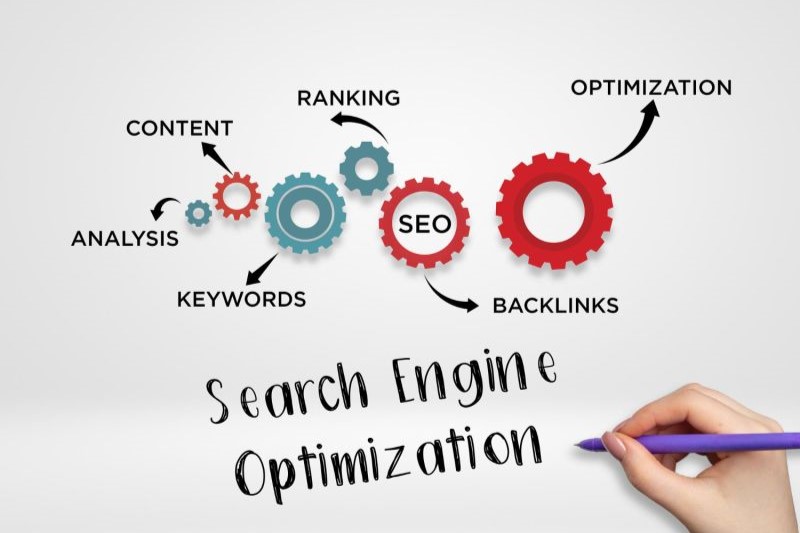Website Optimization for Search Engines (SEO): A Complete Guide
 The Writer's Nook
The Writer's Nook
In today's digital age, where the internet is the go-to source for information and services, having a strong online presence is crucial for any business or organization. However, simply creating a website is not enough. To ensure that your website is visible to potential visitors, it needs to be optimized for search engines. This is where Search Engine Optimization (SEO) comes in.
What is SEO?
SEO is a process of improving the ranking of a website on search engine results pages (SERPs). When users search for keywords or phrases related to your website's content, the higher your website ranks, the more likely it is to be seen. This can translate into more traffic, leads, and sales for your business.
Why is SEO important?
SEO is important for several reasons:
Increased website traffic: SEO can help you attract more visitors to your website, which can lead to increased brand awareness, leads, and sales.
Improved website ranking: When your website ranks higher in SERPs, it is more visible to potential visitors, which can lead to increased traffic and conversions.
Cost-effective marketing: SEO is a cost-effective marketing strategy that can provide long-term benefits for your business.
On-page vs. Off-page SEO
There are two main types of SEO: on-page SEO and off-page SEO.
On-Page SEO
This focuses on optimizing your website's content and structure to better align with search engine algorithms. Key factors include:
Keyword Research: Identify the keywords and phrases your target audience uses to search for relevant information.
Content Optimization: Create high-quality, informative, and engaging content that incorporates your target keywords naturally.
Website Structure: Ensure your website is easy to navigate with well-organized content.
Title Tags & Meta Descriptions: Craft compelling and relevant titles and meta descriptions incorporating your target keywords.
Header Tags: Use header tags (H1, H2, H3) to structure your content and highlight important keywords.
Off-Page SEO
This focuses on building backlinks to your website from high-quality websites. Backlinks act like trust signals, positively impacting your website's ranking and authority in the eyes of search engines. Strategies include:
Guest Blogging: Write guest blog posts for high-authority websites in your industry, incorporating relevant links back to your website.
Broken Link Building: Identify broken links on relevant websites and offer your own high-quality content as a replacement, earning a backlink in return.
Social Media Promotion: Actively share your content on social media platforms to drive traffic and potential backlinks.
SEO Best Practices
Here are some of the best practices for optimizing your website for search engines:
Conduct Regular Keyword Research: Keyword research is an ongoing process. Update your keyword strategy regularly to reflect industry trends and user behavior.
Create Quality Content: Invest in creating unique, informative, and engaging content that resonates with your target audience and addresses their needs and interests.
Optimize Titles & Meta Descriptions: Fine-tune your titles and meta descriptions to be compelling, relevant, and accurately reflect your content.
Implement Internal Linking: Strategically link relevant pages within your website to improve user experience, website structure, and search engine understanding.
Optimize Images: Utilize descriptive filenames and alt tags for your images to enhance accessibility and search engine understanding.
Ensure Mobile-Friendly Design: In today's mobile-first world, a website optimized for mobile devices is crucial for SEO success.
Monitor Website Performance: Utilize tools like Google Search Console and Google Analytics to monitor your website's performance, identify areas for improvement, and track your progress.
SEO Tools
There are a number of SEO tools available that can help you optimize your website, including:
Google Search Console: This free tool provides valuable insights into your website's search performance, including keyword ranking, crawl errors, and mobile usability.
Ahrefs: This paid tool offers comprehensive backlink analysis, keyword research, and competitive analysis.
SEMrush: This paid tool provides in-depth keyword research, competitor analysis, website audit, and backlink tracking functionalities.
Yoast SEO: This popular WordPress plugin helps you optimize your website's content and technical SEO aspects.
Conclusion
SEO is a dynamic, ongoing process that requires continuous effort and adaptation. However, investing in SEO strategies can reap significant rewards for your business. By implementing the best practices and utilizing available tools, you can improve your website's visibility, attract more visitors, and achieve your online goals. Remember, SEO is a journey, not a destination. Enjoy the process of optimizing your website and witnessing its growth in search engine rankings.
Subscribe to my newsletter
Read articles from The Writer's Nook directly inside your inbox. Subscribe to the newsletter, and don't miss out.
Written by

The Writer's Nook
The Writer's Nook
Welcome to "The Writer's Nook"! I'm delighted to have you here. I'm Hasna Mariyam VP, the writer, creator, and curator of this blog. With a passion for content writing, digital marketing, and technology, I am dedicated to sharing my knowledge, insights, and experiences in these dynamic fields. In our rapidly evolving digital era, technology and digital marketing have become indispensable aspects of both our personal and professional lives. Through "The Writer's Nook," I aspire to empower individuals like you to navigate the digital landscape with confidence, adapt to emerging technologies, and leverage digital marketing tactics to achieve your goals. Thank you for joining me on this thrilling journey.